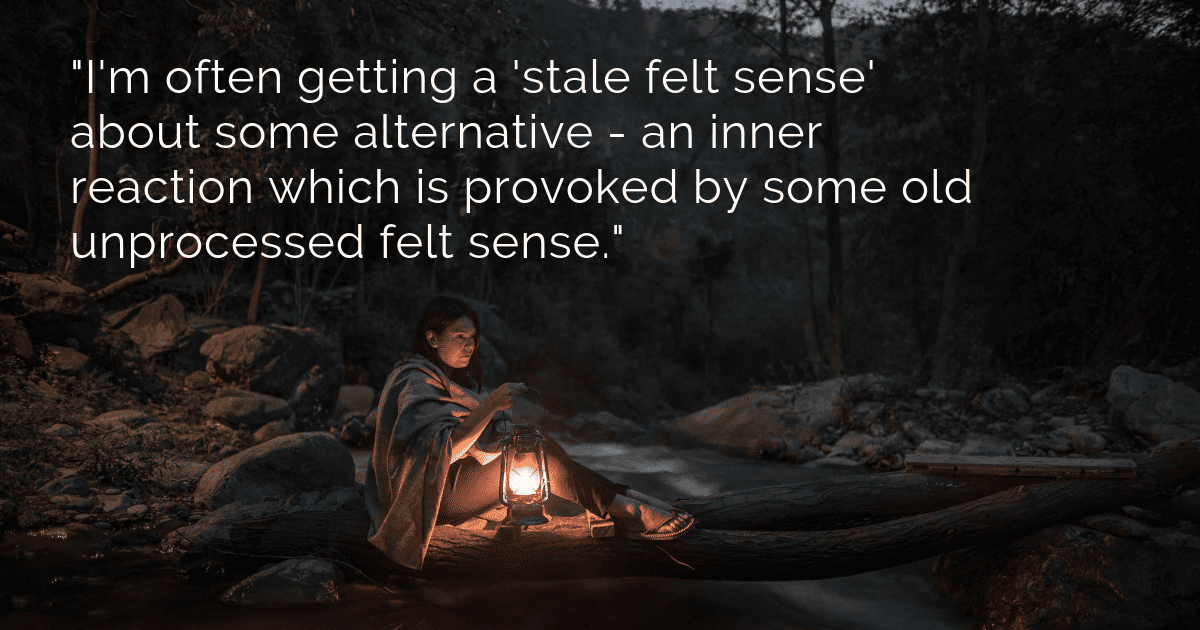When you try to consult your inner compass for your decisions, do you get confusing readings? Read on…
Miro writes:
In a Focusing course, I learned a technique of “inner compass” for decision-making – basically not to analyze your choices rationally, but rather to find individual felt senses about each of your alternatives. However, when I tried this out, I realized that I’m often getting a “stale felt sense” about some alternative – an inner reaction which is provoked by some old unprocessed felt sense. Will I be able to use the inner compass, as long as I still have this huge amount of unprocessed stale felt senses?
Dear Miro:
What you are calling a “stale felt sense” is what Barbara McGavin and I refer to as a “part.” Parts of us get into repetitive emotional states that don’t take us forward.
And you have put your finger on the biggest problem with classic Focusing, which says that you can get a felt sense about any life situation, and then use that felt sense as a inner compass to guide your way forward.
The problem is this: When a part of you is in the driver’s seat, you can’t get a felt sense. At all.
Let me give you an example.
Let’s say you want to make a decision about whether to leave your job or stay in it. As soon as you try to get a felt sense about the alternative of leaving, you are gripped by anxiety. Your heart beats too fast and your stomach clenches. A panicky part of you has been triggered. This is not a felt sense… which is defined as a subtle, fresh whole sense of a life situation.
It’s like trying to listen to a whisper when someone is blaring music in your ear. We can’t get the subtle felt sense because the anxious part has occupied the body.
We can have compassion for that anxious part, of course! It’s not doing anything wrong. But it needs something. It needs you… to acknowledge it, to put a gentle hand on it, to say, “Hello, I know you’re there.”
What Inner Relationship Focusing added to classic Focusing was this awareness that we often need to attend to our “parts” before we can get felt senses. Once the parts have calmed down, your inner compass will work just fine!







Matthew, glad you found it helpful! – Ann
very helpful q and a – thanks to both